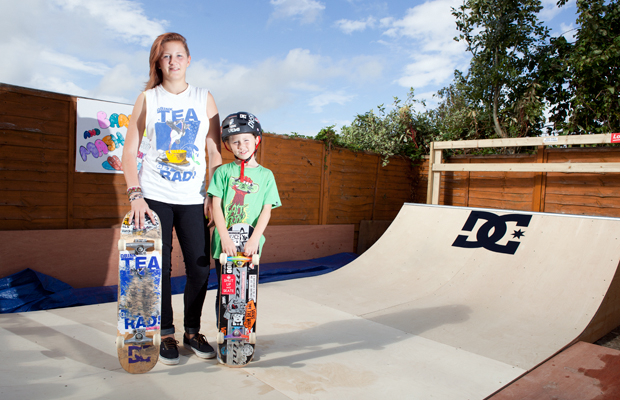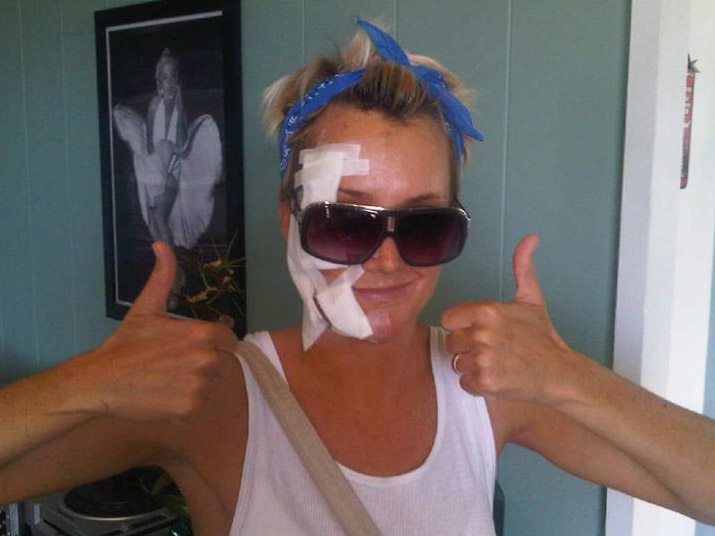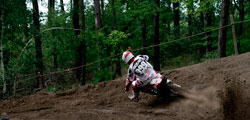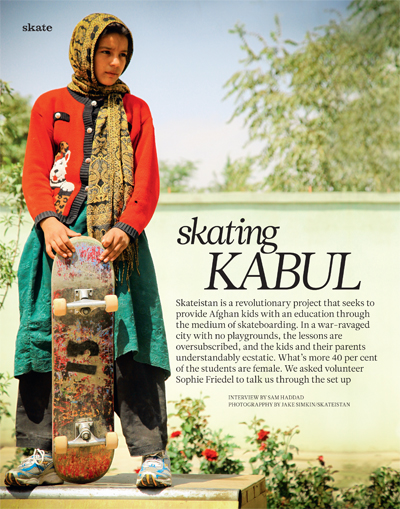 With our good friends at howies auctioning off their mini ramp for Skateistan, we thought it was time to re-publish the ‘Skating Kabul’ feature we had in the mag last year, to spread the word on their good work and inspire everyone to get involved and help. Also make sure to check out the trailer for their movie!
With our good friends at howies auctioning off their mini ramp for Skateistan, we thought it was time to re-publish the ‘Skating Kabul’ feature we had in the mag last year, to spread the word on their good work and inspire everyone to get involved and help. Also make sure to check out the trailer for their movie!
Interview with Sophie Friedel by Sam Haddad, photos by Jake Simkin/Skateistan
How did Skateistan start?
Around three years ago Sharna Nolan was working here as an aid worker and her boyfriend Oli Percovitch came over for a holiday. He brought his skateboard and all the kids on the street kept following him and wanting to play with his board. So the next time he came out he bought a couple of skateboards and started skating with the kids at the water fountain in a place called Macroyan near Kabul. He also realised it was the only sport where girls and boys could play together in public, and that it was deeply enriching the community. So he got his act together and started applying for funding. The skate park opened November last year and we started the school in January.
So it took a lot of time to get the park built?
It took eight months but it was harder to secure the land as all the landowners wanted a big bribe and lots of foreign people were involved. It took two and a half years to secure the space.
What was the local reaction – did they frown on girls and boys skating together?
No not really because Sharna and Oli were skating together so they saw that male and female could do it. Some people said you couldn’t teach the kids outside as it’s far too dangerous and you’re a foreigner but he just ignored them and it worked perfectly. The kids were happy and kept coming back. The fountain where they were skating was very close to where the street kids sold chewing gum and washed cars so they would come and watch and get involved that way.
In the West people often see the Afghan people as one race but it’s more complex than that right?
Yeah historically it’s very complicated with the mix of ethnic groups, but luckily there are lots of young Afghans now who see themselves as young Afghans rather than Pashtuns or Tajiks. The core aim of Skateistan is to mix people from different ethnic and social backgrounds so we try and have a percentage of different backgrounds from each group in each class. And we have educated kids as well as street children in the same class, which can make it hard to teach as the educated ones can communicate with us in English but the street kids can’t even write their own name in Dari (one of the two official languages).
How do you get around that?
We use a participatory teaching style. We play games in the middle of class and then we do project work classes, for example to make a magazine or we give them disposable cameras and they take pictures of things that interest them and then we talk about what they’ve produced.
Is there a big difference between the educated and non-educated kids?
Yes. The educated kids’ parents work for say the police, media and government, and the street kids wash cars and clean shoes. The educated girls are quite posh and wear clean clothes and the others are more traditional with dirty faces and messy hair. We teach in a u-shape formation most of the time and it used to be the street kids on one side and the educated ones on the other side, and when we played games they didn’t want to touch each other’s hands. But I started taking a street kid and an educated kid and putting them together and by the end of the class they were all talking and really warming to each other, where as before they’d been looking at each other with folded arms. I don’t know how far that will spread beyond the classroom but it’s a start.
And that emphasis is in the classroom as well as the skatepark?
Yes it’s far more than just a skateboard mission – we want to change lives. The skateboarding is a hook to get the kids involved and give them a chance to do sport. It’s also a space where the kids can communicate and hangout because there aren’t any public spaces here. We only have one playground for a city of five million people and that playground is pretty much a ruin and not a nice place to hangout. And there are a high percentage of young people here, especially teenagers. Their parents don’t let them on the streets as it’s too dangerous and the street kids don’t go to normal school so there’s no space for them to interact. I definitely believe that if you get the kids to understand each other’s differences when they’re young generational change over time is possible.
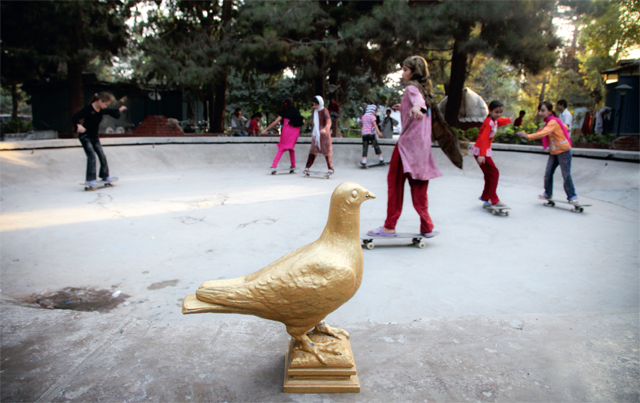
What is the split between boys and girls at Skateistan?
40 per cent female, 60 per cent male, though the aim is to be 50/50.
That’s still pretty high compared to skateparks in Europe.
In the wider context it’s good I guess but I’d still like it even!
And what ages are the students?
We aim to educate from five to 17 years old but we’ve had problems with girls being allowed to attend so some of the girls coming are as old as 24 but we’ve allowed that. It’s really cool, they love it.
Do they still wear hijab?
Some wear traditional stuff and others don’t, it’s about half/half. It’s really funny as we have one girl who comes in high, shiny red leather boots and then goes to the changing room and puts her trainers on, haha.
Do the police not check their dresses like in Iran?
Not that I’m aware of, but they wouldn’t need them to, as the men here make it possible to not dress appropriately.
How? By telling you off?
You’d just be a really easy target to get picked on. It’s not that they wear burkas all the time, though there is a high percentage of that but all my friends just wear headscarves. And the aid workers and some of the girls feel comfortable enough to take them off in the classroom but then as soon as there are men around they obviously wear headscarves.
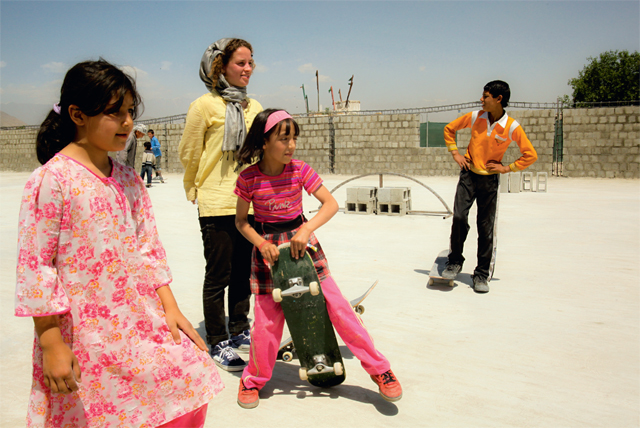
How did you start working for Skateistian?
I’ve been here about 8 months now. I read an article on Skateistian and just thought it was the right thing to do. I could identify with the core values of the project and figured it was a really cool opportunity for the kids here, for their self-esteem and confidence to help them show respect to each other. I felt there was something useful I could do to help.
Was it a massive culture shock?
It’s just a completely different understanding. I liked the diversity and travelling in Europe at first but these days I find it a bit boring. Say if you go to London, Paris and Milan you have the same shops and cafes, like Starbucks and commercial businesses and here is just really special. It’s an amazing place, and the people are so friendly which sounds crazy when you consider all the news you see. The people who mostly live here are really lovely and welcoming.
Do you see much of the Taliban?
Not really. There have been a few blasts and I’ve seen the smoke but they aren’t walking around the streets here, they’re in hiding. And the attacks are mainly in the early mornings as well so you don’t see them.
Is it scary?
Before I came I thought it would be but we live in a really safe neighbourhood outside of the city with lots of families. The international businesses and foreigners are the targets so we stay away from certain places and live as low a profile as possible. I feel really safe, I ride motorbikes and walk on the street here. It’s just kind of adapting to the space, having respect for the situation but not being overly morbid about it at the same time. I don’t really worry about too many things anymore in my life, as there are so many bigger problems here.
Would they rather the UK and US forces moved out?
I’m not too sure as, at least with the kids and their families, we try to not talk about politics and issues. But they all love having foreign teachers. We always have one foreigner and one Afghan in the class and their parents like them to work with foreigners. When we’re riding our bikes people say, “Hello, how are you?” They’re really happy to be able to practise their English and are really open to foreigners. I think it’s different if you’re here in an armoured vehicle and have guns around you though.
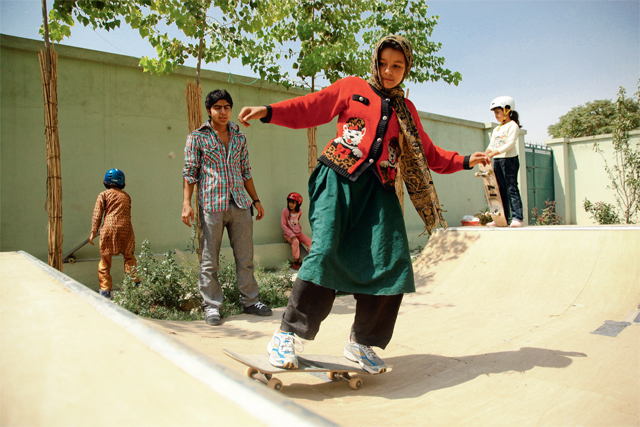
Why do you think this project works so well with skateboarding rather than say tennis or football?
Skateboarding is a really creative sport and a good way of expressing yourself. Obviously it can be competitive, say if you look at the X Games but also it’s a peer sport, you can encourage your friends to drop in and do tricks or do it by yourself.
What is the standard of girls skating like?
It’s not amazing but for here it’s pretty incredible. I’ve noticed improvements already but the kids can only come once a week, as we have so many kids. There aren’t any skate shops here so you can’t buy skateboards, decks or trucks. You can’t even buy trainers, aside from running shoes. And as they have no boards they can’t practise at home. That said, the older girls have improved so much, they don’t have any fear they just go for it. I’ve taught skating in Germany and the UK and it normally takes a long time for people to be able to balance but here they are just so fast.
To read more about Skateistan and donate to the cause visit skateistan.org
Interview with local skater Fazila Shirin Del
When did you first get into skateboarding?
About two years ago. I was working on the street near Macroyan selling chewing gum when I saw Wais playing with a skateboard near the fountain. There was one board and about 15 boys waiting to play with it. A few days later I saw Sharna and Oli and Sharna asked me if I’d like to try it.
How did it make you feel?
It was fun. When I first skated I did it secretly and that was bad because I couldn’t sell enough gum and I had to work really hard afterwards to bring enough money home. My parents realised that I could learn useful things here too so they now allow me to come skate once a week if I’ve earned enough money during the week. Coming here makes me forget about the things that I don’t like and that’s why it’s so much fun. I skate once a week for one hour. I would love to skate more but I don’t have the time. I go to school in the morning and work in the afternoon.
We hear that you teach. How did that come about it?
I like to show girls who try to skateboard how it works. It’s fun to see them get better. Then Skateistan asked me if I’d like to help during the girls’ lessons and that’s what I do now.
What do you notice about how the kids change once they start skateboarding?
They have happy faces and the boys are a lot friendlier to the girls since we started skateboarding.
Do you think this kind of project would work as well with say football?
I don’t know. As a girl I’m not allowed to play football so I can’t say.
Is there anything else you’d like to say about Skateistan?
It is like our family and our second home. We all help each other and wait all week to come here. It makes us clever and educated because we learn how to write and read in Dari and English. But we also learn interesting things like how to use a camera and tell stories and write newspaper articles.


